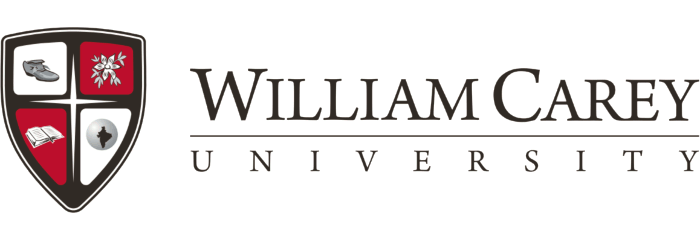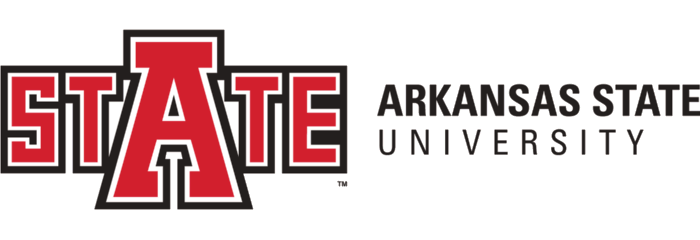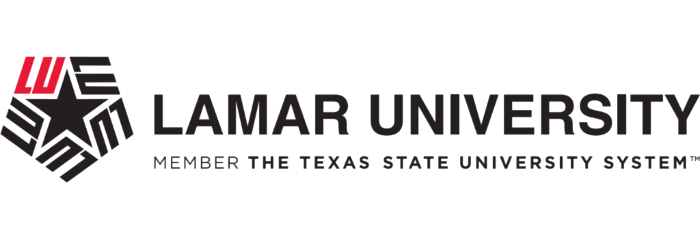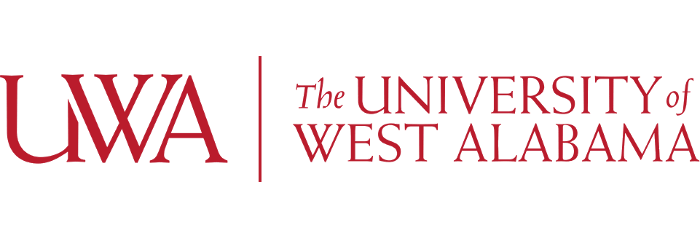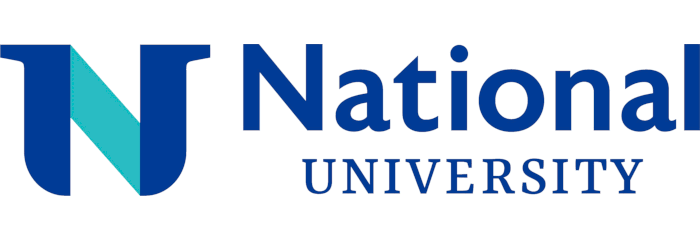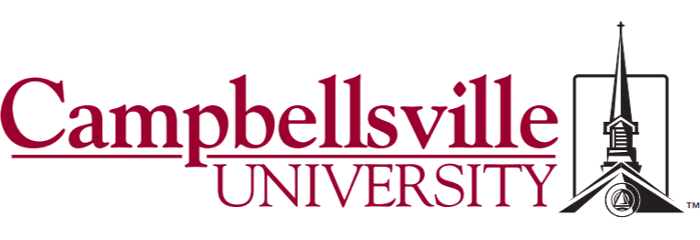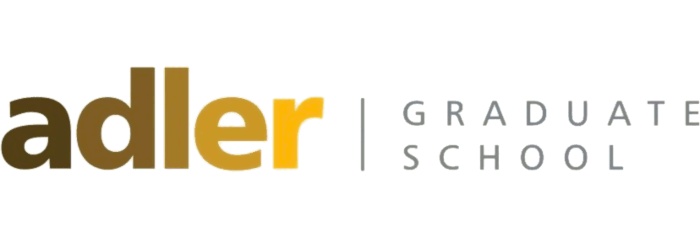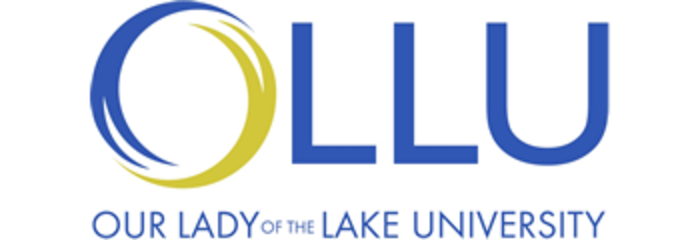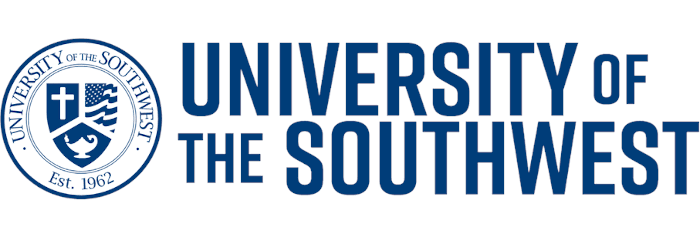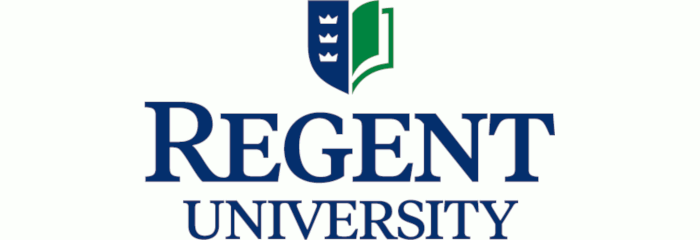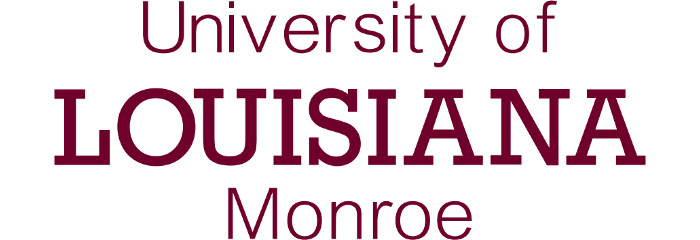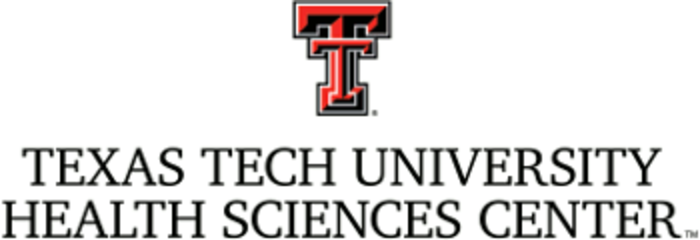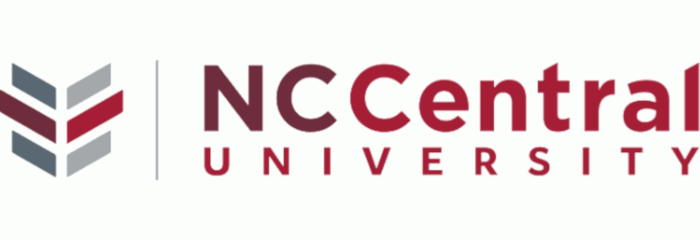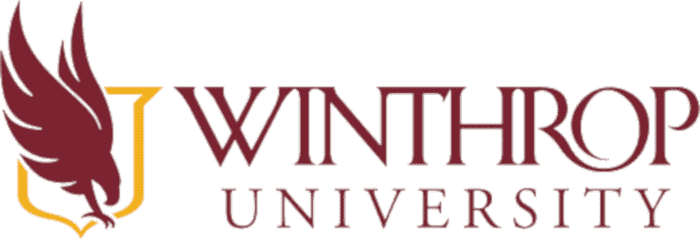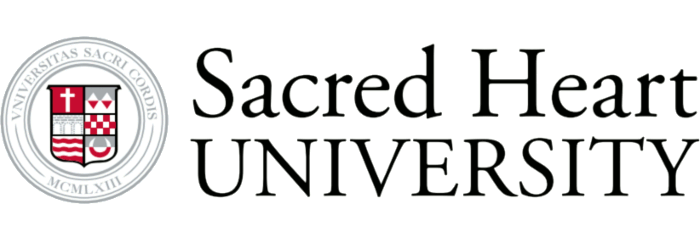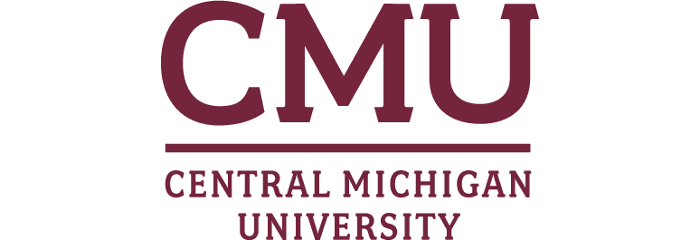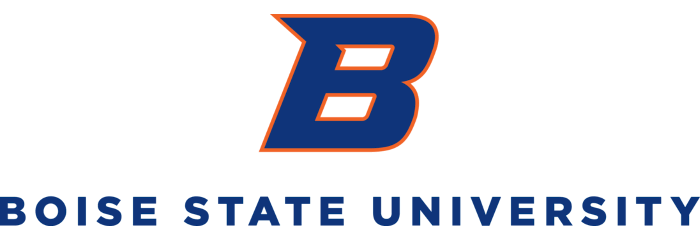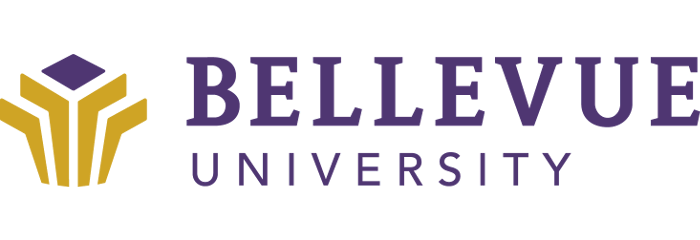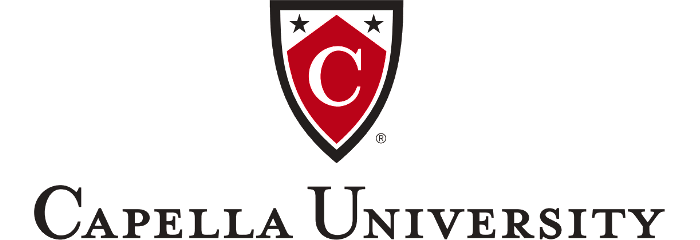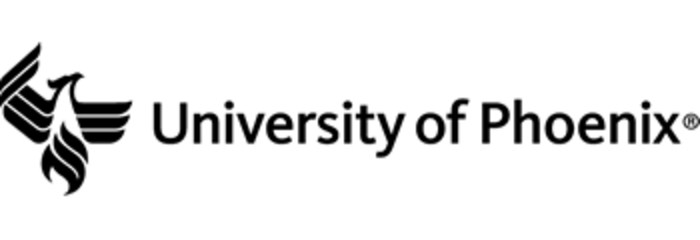2025 Best Online Master's Degree in Counseling
An online master's degree in counseling offers flexible, comprehensive training in mental health, school, and career counseling. Accredited and licensure-preparing, they feature interactive elements like virtual simulations and teletherapy practice. These programs often offer specializations to match career goals, preparing you for roles in schools, healthcare, and private practice.
Key Takeaways:
- The counseling master's degrees with the best Salary Scores all have median earnings above $55,000, indicating a strong return on investment for graduates.
- All of our most affordable master's degrees in counseling online have tuition costs below $8,500.
- Honorable Mention schools feature online enrollment figures between 18,919 and 26,447, placing them in the top 1% nationally for popularity among distance learners.
We emphasize four key categories to guide your educational decisions: Best by Salary Score, Best by Affordability, Highest Rated by Students, and Honorable Mentions. For more details about our selection process, please visit the official methodology page.
At a Glance:
Featured Popular Online Colleges
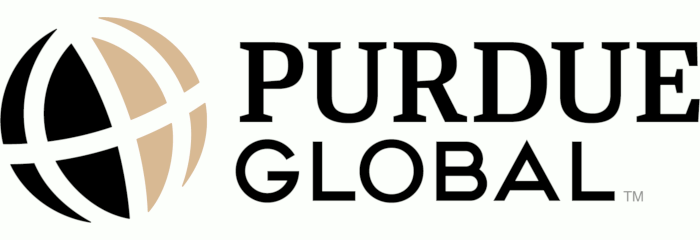
Purdue Global
- Online Enrollment: 11,615
Purdue Global's Master of Science in Psychology with a concentration in addictions prepares you to counsel clients with addictions to substances and behaviors. Featuring a curriculum built for practical application, the program offers options to customize your education through four concentrations. Accredited by the Higher Learning Commission and the National Addiction Studies Accreditation Commission, it enables graduates to pursue the National Certification Commission for Addiction Professionals exam. With a tuition fee of $420 per credit and a one-year completion timeline, 94% of graduates secure employment or continue education within 18 months.

Liberty University
- Online Enrollment: 45,783
Liberty University's online MA in Human Services Counseling with a focus on Life Coaching offers a 30-credit curriculum designed for both seasoned professionals and newcomers in the human services field. This program features online, 8-week courses, and allows you to transfer up to 50% of the degree credits. It integrates scientific research with a biblical worldview, helping you mentor clients on professional, financial, and relational goals. The tuition is priced at $565 per credit for full-time students. Core courses include Health and Wellness, Marriage, Financial, and Leadership Coaching.

Grand Canyon University
- Online Enrollment: 34,152
Grand Canyon University offers a Master of Science in Addiction Counseling through the College of Humanities and Social Sciences. This comprehensive program combines classroom learning with hands-on experience, covering crucial areas such as substance use assessments and treatments. Graduates aim to secure licensure as substance abuse counselors. The program comprises 36 credits over eight-week online courses, providing flexibility for students. With NASAC accreditation, the program meets national standards, enhancing credibility for licensure. The U.S. Bureau of Labor Statistics projects an 18% job growth for counselors by 2032, highlighting the demand in this profession.
Best by Salary Score
We evaluate online counseling master's programs by alumni salaries to identify the best long-term financial investments. Each school gets a Salary Score, with an A+ indicating higher alumni salaries. Scores are based on early career earnings four years post-graduation and include only graduates with federal financial aid. The top counseling master's degrees online have median earnings above $55,000.
East Carolina University
Why We Like Them:
ECU is a great choice for pursuing an online Master of Science in Counselor Education, thanks to its strong earnings outcomes. Graduates attain a median salary of $55,488, placing this program in the top 37% compared to other institutions. This reflects the university's commitment to providing a substantial return on investment. The program's CACREP accreditation ensures it meets high educational standards, making it a solid choice for aspiring counselors. The online format offers concentrations in Clinical Mental Health Counseling, School Counseling, and College Counseling, catering to diverse career aspirations.
What Students Say:
"I would encourage all students, particularly working adults, to consider East Carolina University's Online Continuing Studies program. The instructors, advisors, and curriculum are all geared toward the needs and interests of older students. A great program!"
T.J., Graduated 2016
Best by Affordability
Tuition data is manually researched, using out-of-state rates unless in-state rates apply to all online students. The most affordable schools with a master's in counseling online have tuition below $15,000. Check the college website for additional fees.
William Carey University
Why We Like Them:
WM Carey's online Master of Science in Counselor Education has a tuition of $7,125, making it a financial standout. Coupled with this affordability is a robust support system, demonstrated by the university's generous average financial aid package of $13,331, positioning it well for accessibility. Also, the fact that 100% of students receive financial aid underscores the institution's commitment to making higher education attainable. This program leads to a Class AA license and an endorsement in Emotional and Behavioral Disorders in Mississippi, preparing you to develop/implement behavioral intervention plans.
What Students Say:
"My five years at William Carey University have shaped me in ways that I didn't even know that I needed. The Psychology program at William Carey University is top-notch, along with the faculty and staff... the faculty have nurtured and helped me develop my love and commitment to the field of Psychology."
Nicole Yates, Graduated 2017
Arkansas State University
Why We Like Them:
A-State has an online Master of Science in Education School Counseling with a tuition cost of $7,200. Complementing this is the fact that the university boasts a remarkable 100% of students receiving financial aid, placing it in the top 18% nationally, thus ensuring that a wide swath of you can access substantial educational support. This program requires 48 credit hours and offers a flexible online format, perfect if you're a working professional or a recent graduate. The CAEP-accredited curriculum equips you with key competencies such as diagnostic criteria in student mental health and best practices in family counseling.
What Students Say:
"I could not have enjoyed my time at Arkansas State University more. The faculty was incredibly supportive as I achieved my Master’s degree... The ease of completing my master’s on my own time made it a wonderful experience. In addition, the courses were organized well... If I ever had any questions, both the professors and academic assistants were always reachable by email and responded quickly and efficiently... I highly recommend this institution if you are considering pursuing a degree."
Kelsey Lynch, Graduated 2019
Lamar University
Why We Like Them:
Lamar's online Master of Education in Clinical Mental Health Counseling costs an annual fee of around $8,208, positioning it in the top 6% for affordability amongst its peers. This is complemented by a program structure that includes 60 credit hours and can be completed in as few as 30 months. We appreciate that the program is SACS-accredited and meets the coursework requirements for becoming a Licensed Professional Counselor (LPC) in Texas. The program includes two five-day, face-to-face residency seminars along with practicum and internship components, offering a blend of theoretical and hands-on learning.
What Students Say:
"Lamar University caters well to military personnel and adults seeking to return to education. They expect students to take full responsibility for their learning and prioritize time management. This can be a wake-up call, urging students to become self-reliant and resilient in the face of challenges."
Erik Ngutse, Graduated 2024
Liberty University
Why We Like Them:
Liberty has online Master of Arts in Clinical Mental Health Counseling, which has a highly affordable tuition of $8,475 that's among the top 9% for cost-efficiency. It requires 30 credit hours and offers 8-week courses that are 100% online. This program emphasizes practical business skills and human services techniques, notably lacking any in-person requirements. The business concentration covers strategic marketing, corporate responsibility, and legal issues, while the counseling aspect delves into human behavior and multicultural issues. This program is not designed for clinical licensure.
What Students Say:
"Liberty online has been great. The staff is very responsive and helpful during the course. The coursework is relevant to life in the real world. The coursework is not easy but manageable. The discount given to first responders and those that served in the military is huge."
Greg, Graduated 2020
University of West Alabama
Why We Like Them:
UWA’s online Master of Education - School Counseling has an attractive tuition of $8,580, placing it among the top 12% nationally. This program requires 60 credits and is structured over three years, with eight-week course lengths. The curriculum is accredited by the CACREP, ensuring you receive education that meets industry standards. Additionally, the program includes a four-day residency, continuously blending online flexibility with essential hands-on experiences. Every UWA student benefits from personalized one-on-one mentorship through the Mentor Collective program, aimed at boosting their professional network and development.
What Students Say:
"Most of the classes had the same expectations and caseload... Most of the instructors were prompt in issuing grades and feedback... Overall, it was a good experience."
Anonymous, Graduated 2015
National University
Why We Like Them:
NU has a highly affordable tuition of $8,840 for its online Master of Arts in Marriage & Family Therapy. This program is thoroughly accredited by esteemed bodies, including the Commission on Accreditation for Marriage and Family Therapy (COAMFTE) and the International Accreditation Commission for Systemic Therapy Education (IACSTE). The curriculum covers specialized areas such as Child and Adolescent Family Therapy, Couple Therapy, and Military Family Therapy. The practical training components, like practicums and internships, are designed to provide hands-on, in-community experiences, ensuring you are well-prepared for licensure and practice.
Southern New Hampshire University Online
Why We Like Them:
SNHU's online Master of Arts in Clinical Mental Health Counseling has a tuition fee of $9,555, making it an economically viable choice. Specifically, the program requires two five-day residencies, integrating theoretical and practical learning. Furthermore, SNHU's curriculum aligns with licensure standards in most states, which is particularly critical for those intending to practice professionally. The program's CACREP accreditation through 2028 ensures it meets the highest standards in counselor education.
What Students Say:
"Overall, I have had no issues with the school. I have maintained an A average. My advisors try to interact, but I don't need assistance... The blackboard is easy to use, though occasionally there are issues with the website on assignment days."
Nate, Graduated 2019
Campbellsville University
Why We Like Them:
Campbellsville has an affordable tuition of $10,208 for its online Master of Arts in Education in School Counseling. Complementing this affordability is a generous average financial aid package of $19,794, which places CU's offerings in the top 21% for financial aid generosity, further. The program consists of 48 credit hours, typically completed within 18 months, with each course spanning eight weeks. Additionally, the CAEP-accredited curriculum covers substance abuse, group counseling, and college readiness, and includes three internships for practical, hands-on experience.
What Students Say:
"Campbellsville University's Carver School of Social Work and Counseling is an excellent program in the empowerment approach to social work practice. This program is geared toward generalist practice and prepares students for professional service in a variety of social work areas."
Dennis Yaste, Graduated 2016
Adler Graduate School
Why We Like Them:
Adler has an online Master of Arts in Counseling - Clinical Mental Health Counseling that costs an annual tuition fee of $11,040, placing it in the top 21% for cost-effectiveness among its peers. This CACREP-accredited program ensures you meet licensure requirements for the Licensed Professional Clinical Counselor (LPCC) credential in Minnesota. The program's strong focus on practical experience, including a 700-hour field experience requirement with practicums and internships, allows you to gain hands-on skills essential for your career.
Pentecostal Theological Seminary
Why We Like Them:
PT Seminary has an online Master of Divinity in Chaplaincy with a tuition fee of $12,960. The program offers a specific focus on Clinical Pastoral Education, with 18 credit hours available in various counseling and ministry subjects. These include courses such as Counseling Skills, Theories and Techniques of Counseling, and Marriage and Family Systems-Theories in Counseling, which provide an educational foundation for future chaplains. This specialization ensures you are not just theoretically prepared but also practically skilled, enhancing your readiness for real-world pastoral challenges.
Our Lady of the Lake University
Why We Like Them:
OLLU hosts an online Master of Arts in Counseling - School Counseling that has a reasonable tuition rate of $13,454. This affordability is paired with the benefit that 100% of students receive financial aid, with an average aid package of $23,349. Notably, the school has an intimate student-to-faculty ratio of 11:1, placing it among the top 23% of schools offering personalized attention, which is crucial for a nuanced field like counseling. We also want to mention the high recommendation rate of 89% that reflects strong student satisfaction at OLLU.
What Students Say:
"You will definitely get counseling experience in this program through practicum and internship the last two years... but it's very expensive since this is a private university."
Anonymous, Graduated 2016
University of the Southwest
Why We Like Them:
USW's online Master of Science in Education - School Counseling has a moderate tuition of $13,629. Additionally, 100% of students receive financial aid, underscoring the institution's commitment to making education accessible. The program requires 42 credits and is fully online, preparing you comprehensively for licensure as a school counselor. With courses exploring counseling theories, ethics, career development, and group/family counseling, followed by practicums and internships, you are well-equipped to serve diverse student populations in elementary to high school settings.
What Students Say:
"I did a lot of research before choosing USW... They met all the requirements...Even with a minor issue I had recently the university staff was helpful and resolved the issue to my satisfaction. Great school so far!!!!!!"
J.W., Graduated 2024
Regent University Online
Why We Like Them:
Regent offers an online Master of Arts in Clinical Mental Health Counseling at $14,600. Furthermore, the school's online enrollment stands at 5,033, placing it among the top 4% for online learners. The program is accredited by the CACREP, ensuring a high standard of education, and the curriculum is robust, entailing 60+ credit hours, with start dates available in January. Unique to Regent, the program integrates biblical principles with clinical techniques, applicable to licensure in Virginia. Notably, students benefit from small class sizes and hands-on learning via internships, making this an ideal choice for many.
What Students Say:
"One strength of Regent University's MA in Clinical Mental Health Counseling program is its ability to provide a quality curriculum that makes its students competitive within the overall job market for LPCs (Licensed Professional Counselors)."
Julie Waples, Graduated 2014
Walsh University
Why We Like Them:
Walsh's online Master of Arts in Counseling and Human Development - Clinical Mental Health Counseling has a competitive tuition of $14,900. Coupled with an average financial aid package of $26,172, WU is in the top 12% among institutions for financial support. This program is tailored to prepare you for licensure with hands-on experience through 100 practicum hours and 600 internship hours within your community. A notable feature is its focus on ethical, legal, and professional foundations, as well as specialized areas such as human development, addiction counseling, and cultural diversity.
What Students Say:
"Walsh Universities program for Counseling and Human Development in Clinical Mental Health is one of the most competitive... I couldn't imagine going anywhere else. I want to make a difference in the world and I know that Walsh will help me with that."
Ashley D'Aurelio, Graduated 2016
University of Louisiana - Monroe
Why We Like Them:
ULM features an online Master of Science in Counseling that has a tuition of $15,000, making it a cost-effective option for an online master's in counseling. This affordability is combined with an extensive average financial aid package of $12,768, which is among the top 30% in financial support offerings, highlighting the university's commitment to making education accessible. ULM’s CACREP-accredited counseling master's program is fully online, removing any need for residency, and it leverages Moodle for course management and Zoom for synchronous activities.
What Students Say:
"ULM is absolutely the best university in Louisiana. I received my teaching certification, master's degree, and now my PhD here. Excellent instructors, friendly staff, and the most beautiful campus. I feel prepared to conquer the world, thanks to ULM."
Jacqueline Morgan, Graduated 2020
Highest Rated by Students
Alumni reviews can be a great way to measure overall student satisfaction. Schools on this list must meet the following requirements: A school must have a minimum of 20 student reviews posted on OnlineU or GradReports, our companion site. One of the highest rated colleges with an online counseling master's degree program was rated 4.63 out of 5 by its students.
Texas Tech University Health Sciences Center
Why We Like Them:
TTUHSC's online Master of Science in Clinical Mental Health Counseling has a student review rating of 4.63 out of 5. This high score reflects significant student satisfaction and confidence in the quality of education provided. Further enhancing its appeal is the program's low student-to-faculty ratio of 7:1, placing TTUHSC in the top 7% for this metric. The CACREP-accredited master's program requires 60 credit hours along with 12 credit hours devoted to practicum and internship experiences, aligning well with industry standards. Additionally, its emphasis on telehealth techniques equips you with cutting-edge skills in a growing sector.
What Students Say:
"The professors and staff are extremely motivated to assist students in their future careers. Each professor is willing and excited to help students excel in the classroom. With the support from the staff, professors and fellow peers, a future Texas Tech student should feel confident they will receive the best education possible."
Kathryn, Graduated 2018
North Carolina Central University
Why We Like Them:
NCCU has a review rating of 4.05 out of 5, showing the positive experiences reported by students. The online Master of Arts in Clinical Mental Health Counseling has earned accreditation by CACREP and ensures that the curriculum meets rigorous standards. Specifically, the Clinical Mental Health Counseling Program consists of 60 credit hours and is recognized as a Criteria C school for Licensure as a Clinical Addictions Specialist (LCAS) in North Carolina. The curriculum prepares you for licensure as a Licensed Professional Counselor (LPC) and offers the flexibility of additional courses to achieve LCAS certification.
What Students Say:
"North Carolina Central University has allowed me great opportunities... Coming from a predominantly white institution from undergraduate, I have never felt so empowered as an African American Female... I don't regret my choice to attend to pursue my graduate degree."
Cleo, Graduated 2018
Winthrop University
Key Metrics:
- Overall Rating: 4.01/5
- Number of Reviews: 28
- Recommend Rate: 100%
Why We Like Them:
Winthrop stands out with a high student review rating of 4.01 out of 5, signifying robust student satisfaction. Moreover, the program’s 100% recommendation rate underscores the profound positive impact it has on graduates. The online Master of Education in Counseling Development - School Counseling is designed to be completed in two years and offers two concentrations: Clinical Mental Health and School Counseling, both CACREP-accredited, ensuring the highest standards in counseling education. Practical experience is a cornerstone of this program, with 600 hours of internships and 175 hours of practicums.
What Students Say:
"I’m happy to say the education at Winthrop University is stellar. Passionate, intellectual educators discussing current education systems... The classes I’ve participated in provided several strategies and resources… Overall, a positive and enriching educational journey."
Jasmine Kwong, Graduated 2018
Virginia Commonwealth University
Why We Like Them:
VCU has an exceptional overall review rating of 3.95. Most students found value in their education here, giving it a solid recommendation rate of 96%. The online Master of Science in Rehabilitation and Mental Health Counseling at VCU is a 60-credit program, where you have the choice between two concentrations: Clinical Mental Health Counseling and Clinical Rehabilitation Counseling, both meeting the educational requirements for professional licensure and certifications, such as the Certified Rehabilitation Counselor and Nationally Certified Counselor.
What Students Say:
"The quality of the instructors, rigorous curriculum, and caliber of classmates is unparalleled. The administrative staff ensures students focus on mastering the information, and the entire program supports student success. This is a top-notch program!"
Jennifer Johnson, Graduated 2018
Sacred Heart University
Why We Like Them:
With a review rating of 3.94, SHU is highly regarded among graduates. It hosts an online Master of Arts in Clinical Mental Health Counseling, and our confidence in this program is bolstered by its CACREP accreditation. It's structured to optimize your educational and professional development. Spanning 60 credits, this online master's degree features both asynchronous and synchronous instruction facilitated through Blackboard, with required clinical placements. Unique to SHU's program are two week-long residencies on their Fairfield, CT campus, fostering a blend of online flexibility and invaluable in-person mentorship.
What Students Say:
"This program does whatever it takes for the students to succeed. The faculty are very engaging and really get to know the students. The faculty is interested and helpful in making the students' transitions, learning, and experiences of graduate school as rewarding as possible."
Jeanette Barajas, Graduated 2018
Arizona State University, Online
Key Metrics:
- Overall Rating: 3.89/5
- Number of Reviews: 725
- Recommend Rate: 90%
Why We Like Them:
ASU's student review score is 3.89 out of 5, showing positive student feedback. The online Master of Science in Family & Human Development at ASU is designed to enhance your understanding of individual and family dynamics. Key requirements include completing 30 credit hours over 10 classes, with each class lasting 7.5 weeks, providing a focused and intensive learning experience. Although the degree does not lead directly to licensure as a counselor, it equips you with practical skills applicable to various human services roles, including HR, crisis intervention, and family support.
Central Michigan University
Why We Like Them:
CMU has a review rating of 3.79 out of 5, and CMU's Master of Arts in Counseling online is accredited by CACREP, ensuring that it adheres to high standards of educational excellence. The program requires 60 credit hours to complete and offers a flexible online format that includes both synchronous and asynchronous courses. With three concentrations available — Addiction Counseling, Clinical Mental Health Counseling, and School Counseling — you can tailor your education to your specific career interests. Practical experience is a core component, including a mandatory practicum and internship, allowing you a chance to work directly with individuals and manage a client caseload.
What Students Say:
"Classes are geared towards immediate real-world application. Online resources are there to help at every turn. The MSA Global Campus program is a first-class choice for working adults."
Holly Zink, Graduated 2015
Boise State University
Why We Like Them:
Boise State's student rate the school a 3.78 out of 5. This affirms the positive experiences of students within the program, evidenced further by a high recommendation rate of 93%. The 21-month Master of Science in Genetic Counseling spans five semesters and is designed to offer extensive clinical rotations in the Western United States, integrating professional development within the interprofessional and business aspects of healthcare. The program's mission to expand the accessibility of genetic counseling education is furthered by its Accreditation Council for Genetic Counseling (ACGC) standards.
What Students Say:
"The small student-to-staff ratio provides personalized instruction and attention. However, it lacks diversity in the student body and limited resources on campus. Overall, it's a good school with solid education."
Allison Willets, Graduated 2016
Purdue Global
Key Metrics:
- Overall Rating: 3.73/5
- Number of Reviews: 626
- Recommend Rate: 75%
Why We Like Them:
With an overall review rating of 3.72 out of 5, Purdue Global offers an engaging Master of Science in Human Services - Family and Community Services that's all online. Courses focus on real-world applications such as human development and professional ethics. There's also a master's capstone in human services. Moreover, the option to specialize in Family and Community Services or Organizational and Social Services allows you to tailor your education to your career goals. To complement your studies, the program also offers resources like the Graduate Resource Center and the Human Services Club for professional development.
What Students Say:
"I had a great experience with Purdue Global. The professors were responsive and supportive, and the online platform was well designed. The flexibility of the program allowed me to work full-time while earning my degree. I found the coursework to be relevant and applicable to my career goals."
Gladys, Graduated 2024
Seton Hall University
Why We Like Them:
SHU has a solid student review rating of 3.61 out of 5, reflecting positive student experiences and satisfaction. SHU hosts an online Master of Arts in School Counseling that requires 48 credits and includes comprehensive developmental school counseling programs, preparing you to be counselors in diverse K-12 settings. Accredited by the CAEP, this program meets the credentialing requirements set by the New Jersey Department of Education, ensuring a high standard of education. The program's inclusive curriculum covers foundational, counseling, and clinical courses, culminating in a school counselor internship.
What Students Say:
"Seton Hall is conveniently located by New York City and with the convenient location comes the ability to expand your horizons with internships and job opportunities. The professors and academic program are top notch because it is able to attract good professors."
M.J., Graduated 2018
Bellevue University
Why We Like Them:
With an overall review rating of 3.54 out of 5, Bellevue hosts an online Master of Science in Child, Youth, and Family Studies that is highly regarded by its students. Examples of courses are Child and Youth Development, Community Child and Youth Development, and Child and Youth Policy. Each course is designed to be deeply relevant, equipping you with the essential skills needed for leadership roles. Bellevue also offers a cohort path, fostering a collaborative and supportive network that enhances your learning experience. The program does not require any prior internship or experience.
What Students Say:
"I completed my MS in Clinical Counseling (recently changed to Clinical Mental Health Counseling to align with CACREP accreditation requirements) from Bellevue University. When I enrolled, Bellevue University's counseling program had recently received CACREP accreditation (a very important accreditation because more states are requiring CACREP accreditation program graduates for licensure). The overall majority of the faculty members are great and very helpful. The professors do want the students to succeed in the program."
Anonymous, Graduated 2020
Houston Christian University
Key Metrics:
- Overall Rating: 3.32/5
- Number of Reviews: 32
- Recommend Rate: 72%
Why We Like Them:
With an overall review rating of 3.32 out of 5 and a 72% recommendation rate, HCU is another good choice for students pursuing an online Master of Arts in Clinical Mental Health Counseling. Complementing this is the fact that 100% of students receive financial aid, a figure that situates HCU among the top 20% of schools in terms of financial support. The program requires 60 credits over two to three years, combining online coursework with essential in-person practicum and internship engagements, ensuring you're well-prepared for licensure as a Licensed Professional Counselor (LPC) in Texas.
What Students Say:
"The staff has been supportive and patient. They have truly helped me, and even professors will go the extra mile. As a private institution, it is expensive, but for students who use their education wisely, it is well worth it."
Lyndric Washington, Graduated 2015
Honorable Mention
Many colleges don't fit into a single category but still deserve attention. Our Honorable Mention section highlights these schools, with specific reasons for our recommendations to help you understand their unique offerings. We feature schools with online enrollment between 18,919 and 26,447 distance learners to showcase popular choices among students.
Capella University
Why We Like Them:
Capella stands out for its remarkable online enrollment, with 26,447 students engaged in virtual learning. This places Capella in the top 1% of universities and colleges with the highest online student enrollment, highlighting its substantial online learning infrastructure and commitment to accessible education. The online school hosts a CACREP-accredited Master of Science in Clinical Mental Health Counseling that is designed to equip you with theoretical and practical skills, including wellness theory, relationship building, and ethical practice, ensuring you are well-prepared for a career in clinical mental health counseling.
What Students Say:
"I have had such a great experience with Capella... The enrollment counselors, coaches, and professors have been so great, and everyone genuinely wants you to succeed. Capella offers a great education experience for a very fair price. I am so grateful and proud to have Capella University as my alma mater."
Bianca O., Graduated 2023
University of Phoenix
Why We Like Them:
UoPX has a significant online enrollment of 18,919 students, placing it among the top 1% nationally. If you are considering an online Master of Science in Counseling - Clinical Mental Health Counseling, you'll benefit from joining this substantial virtual learning community. The program covers professional counseling orientation, social and cultural diversity, and clinical assessment methods. The curriculum requires 60 credits, with coursework in group counseling, legal and ethical issues, and crisis intervention. You will also engage in three 1-credit residency experiences for hands-on learning and a required 600-hour clinical internship, critical for licensure.
What Students Say:
"Everyone's experience will vary, mine has been rewarding. You get out what you put in. The instructors have offered great insight and relevant experience."
Erick, Graduated 2016
Featured Popular Online Colleges

Purdue Global
- Online Enrollment: 11,615
Purdue Global's Master of Science in Psychology with a concentration in addictions prepares you to counsel clients with addictions to substances and behaviors. Featuring a curriculum built for practical application, the program offers options to customize your education through four concentrations. Accredited by the Higher Learning Commission and the National Addiction Studies Accreditation Commission, it enables graduates to pursue the National Certification Commission for Addiction Professionals exam. With a tuition fee of $420 per credit and a one-year completion timeline, 94% of graduates secure employment or continue education within 18 months.

Liberty University
- Online Enrollment: 45,783
Liberty University's online MA in Human Services Counseling with a focus on Life Coaching offers a 30-credit curriculum designed for both seasoned professionals and newcomers in the human services field. This program features online, 8-week courses, and allows you to transfer up to 50% of the degree credits. It integrates scientific research with a biblical worldview, helping you mentor clients on professional, financial, and relational goals. The tuition is priced at $565 per credit for full-time students. Core courses include Health and Wellness, Marriage, Financial, and Leadership Coaching.

Grand Canyon University
- Online Enrollment: 34,152
Grand Canyon University offers a Master of Science in Addiction Counseling through the College of Humanities and Social Sciences. This comprehensive program combines classroom learning with hands-on experience, covering crucial areas such as substance use assessments and treatments. Graduates aim to secure licensure as substance abuse counselors. The program comprises 36 credits over eight-week online courses, providing flexibility for students. With NASAC accreditation, the program meets national standards, enhancing credibility for licensure. The U.S. Bureau of Labor Statistics projects an 18% job growth for counselors by 2032, highlighting the demand in this profession.
Student Reviews of Online Counseling Programs
Lock Haven University's Clinical Mental Health Counseling Program is the best program I ever could have asked for. I have almost graduated, and it was the best decision I made in my career to attend this school. The quality of education is great and they really want to ensure you understand all the material and are critically thinking, not just memorizing things for useless little quizzes/etc. All the professors are amazing and truly care about their student's success and well-being. They are not... Read More
Review Date: 11/5/2023
Would Recommend: Yes
I am still enrolled in this program and feel I need to make this review to help others. Faculty with the online program are hit and miss. I have had some really amazing and dedicated instructors, and others are just an insult to the profession and should never teach a course again. Many students have had phantom instructors who never engage or offer ANY feedback. Currently 2/3 of my professors are like this. I have felt so discouraged in continuing the program because of the instructor's lack of... Read More
Review Date: 3/20/2018
Would Recommend: No
I am pretty new to the M.A. in Counseling program but it’s been great so far! I have a small cohort and all of the classes are live so I really feel like I know my classmates and professors. This school seems to be on the up-and-up and it sounds like the program is growing larger every year (probably because of the CACREP accreditation). Overall I’m very happy here.
Review Date: 5/10/2021
Would Recommend: Yes
Palo Alto is growing rapidly and is quickly making a larger name for itself in the field. I really enjoy my classes and the cohort model has been wonderful as I've gotten to know my classmates very well. Also, it's worth noting that PAU is affiliated with Stanford and I've been able to do research with Stanford university professors, so that's been pretty cool! This program is what you make of it, but if you are a dedicated student and have a love for the content that you're learning, you'll do great... Read More
Review Date: 3/16/2022
Would Recommend: Yes
Walden is an an excellent school for someone looking for an actual professional level degree. It is NOT a degree for someone unwilling to do the work, to change and challenge themselves, or meet professional level expectations. It is a true Masters Level program, delivered 90% online, and that means the onus to get the work done and do well is on YOU. The professors in these courses are all Doctors, who are working clinically in the field, and have years of experience. They have written textbooks,... Read More
Review Date: 9/21/2022
Would Recommend: Yes
I'm a bit confused about the negative reviews. I'm on my second term at Capella and I have had zero issues thus far. My advisors have been great, my professors are clearly knowledgeable, and the course content is very detailed. Not only that, but I am getting a LOT of information and preparation for my future career, which is just the cherry on top. I have also not had any issues with my financial aid. I will leave another review after I graduate, but as of right now, it has been a breeze.
Review Date: 4/17/2019
Would Recommend: Yes
I absolutely love everything about the school and highly recommend it to anyone whether they come from a faith based background or not. In 2016 I completed my BS online there in interdisciplinary studies focusing on psychology and early childhood education and I returned last year to complete my masters in Human Services Counseling- Executive Leadership. The faculty and professors have all been extremely helpful and supportive. I’ve even spoken to a couple of professors over the phone that helped... Read More
Review Date: 3/28/2022
Would Recommend: Yes
Bellevue U’s M.S. (CACREP accredited) clinical counseling program gives you in depth course preparation and the ability to apply what you have learned to specific case studies, before entering into counseling internship. Each course has papers, discussion boards, exams and video/audio recorded student projects that measure ability and allow for demonstration of understanding in multiple ways. From start to finish, there are many opportunities to connect “in person” with instructors and other students... Read More
Review Date: 3/14/2021
Would Recommend: Yes
I transferred to the Bellevue Master of Science in Clinical Mental Health counseling program after taking counseling courses from another grad school that was extremely sub-par in thoroughness, quality of instruction and depth of necessary subject matter. This appeared to be a reflection of younger, much less experienced and (ironically) much more authoritarian and ego-driven instructors. Bellevue U’s MSCC program was the exact opposite. They offered several handfuls of courses the other program... Read More
Review Date: 4/4/2021
Would Recommend: Yes
Overall, I think the MA in Counseling program is wonderful! Here are my key takeaways: 1) The professors are supportive, knowledgable, and flexible, 2) classmates are encouraging, 3) curriculum is sublime and incorporates modern issues, but is very challenging, 4) be prepared to do some counseling (e.g. taking on a counselor role w/ a student), & 5) all classes overlap w/ the 90 unit licensing program. Because of this, I often felt like "the other" because I plan to pursue a career in higher ed,... Read More
Review Date: 5/1/2021
Would Recommend: Yes
I had a great experience at Liberty. I did the masters in counseling program while I was working full-time and finished in just over two years. It was intense, but the 8 week class structure made it doable. I had some really stellar professors who went above and beyond. I also had some mediocre professors. Fortunately, my practicum and internship professors were wonderful. I learned a ton from them. You do need to know what you're signing up for with an online program. Most of your learning will... Read More
Review Date: 12/21/2021
Would Recommend: Yes
Loved my program at Walden. COVID hit while I was a student. The university and faculty supported students and their families by allowing leniency. The student assistance program offers 3 free counseling sessions for students, their families, their roommates. You can get 3 free sessions for each stressor! They have one on one faculty support for skill development for any student who asks. They have support faculty for students who have life challenges (e.g., hurricane, death of lived one, house burned... Read More
Review Date: 2/26/2022
Would Recommend: Yes
My journey began attending another online University that had no respect for me as an individual after suffering a severe shoulder injury. I never had any family or academic support which, lead me to Capella University. The first day I began I have had nothing but support and worked really hard towards my academics which, earned to be on the Presidents List, invitation to be a Chi-Sigma Iota as well as becoming an Ambassador. My experience has been so supportive as well as positive throughout my... Read More
Review Date: 2/22/2018
Would Recommend: Yes
Im seeing a lot of negative reviews and believe me, Ive experienced some frustrating situations with Argosy. I think there are some areas of improvement, for sure. But after being in the program over a year and having different professors, I can confidently say-the bottom line is what amount of effort you put into your studies. I think the professors are very knowledgeable on the material and are willing to help in any way they can. With that said, Ive had a lot of classmates complain about course... Read More
Review Date: 7/3/2018
Would Recommend: Yes
I'm enjoying Capella. You get out of it what you put into it. I've had some great instructors and I've had some that were basically ghosts who didn't do anything. You review your professors every term. The good professors get a good review, the bad ones get a bad review. I have not heard great things about flex path, but I am taking two classes per term and so far have a 4.0 GPA and am almost half way done with my program. I probably invest 5 hours per week into my school on a normal week, which... Read More
Review Date: 7/24/2018
Would Recommend: Yes
Capella University has it all. Highly skilled professors, academic advisors, online technology and provides an online library with endless peer reviews scholarly journals, reports and publications. Peer collaboration is enough to give one the classroom feel without the time constraints of traveling miles to meet at inflexible times. Support is available all throughout the learning experience and while it is a lot of hard work, I wouldnt trade this experience for any other college.
Review Date: 9/20/2018
Would Recommend: Yes
Pros: My graduate program is informative and knowledgeable concerning the current curriculum. It actually teaches current and relevant information that is beneficial to real world practices Cons: Interactions between students and teachers could be less costly.
Review Date: 8/28/2014
Would Recommend: Yes
With working full time I am able to continue my studies in a masters degree in mental health counseling to further my education and career. I have found that Walden University meets the career and educational services for individuals who are working adults. The professors and advisors are available to their students when questions are needed regarding either their work load, regarding assignments, and/or financial aid services. I have found that Walden University has serviced my needs in being able... Read More
Review Date: 5/24/2015
Would Recommend: Yes
Regent University is an exceptional example of an institution with a Christ-focused education as well as a holistic curriculum. Although I am only one semester into my education, I am confident that the Lord led me to this university. I am currently pursuing a Master of Arts in Counseling (on the Clinical Mental Health track with a School Counseling certificate) within the School of Psychology and Counseling. Regent's counseling program is CACREP-accredited, which means that students receive the... Read More
Review Date: 12/30/2016
Would Recommend: Yes
Colorado Christian University makes getting your Masters Degree online very easy. The enrollment staff and faculty are very kind and helpful. The curriculum is solid and definitely will prepare you to enter the field after graduation. Though I haven't completed my degree yet, I am very glad that I choose CCU to pursue my Masters through.
Review Date: 2/1/2017
Would Recommend: Yes



